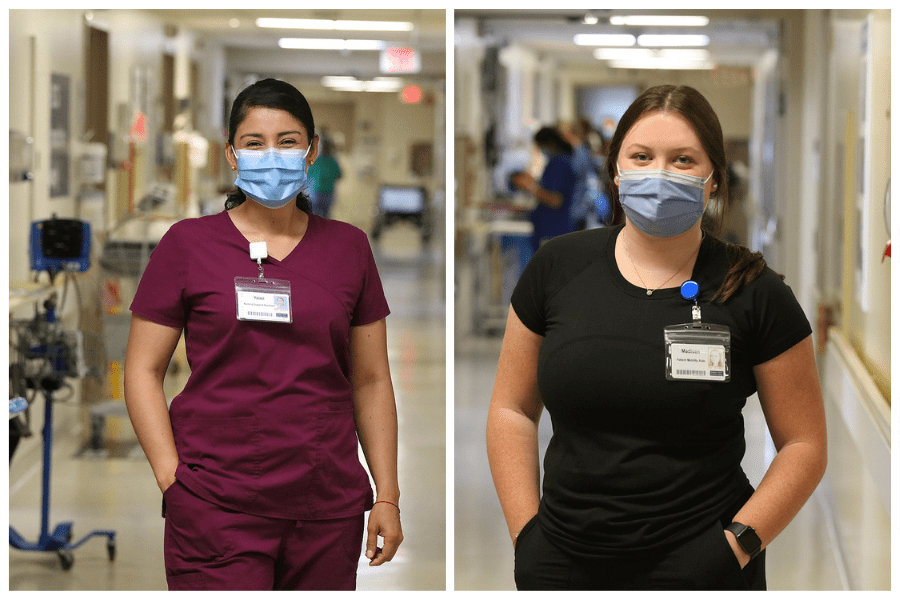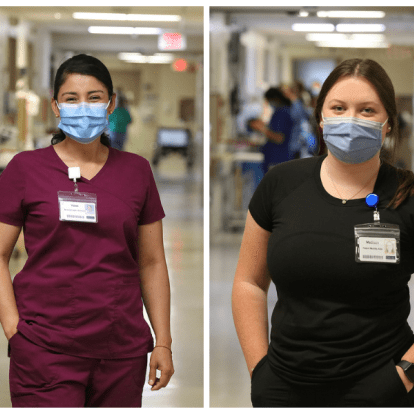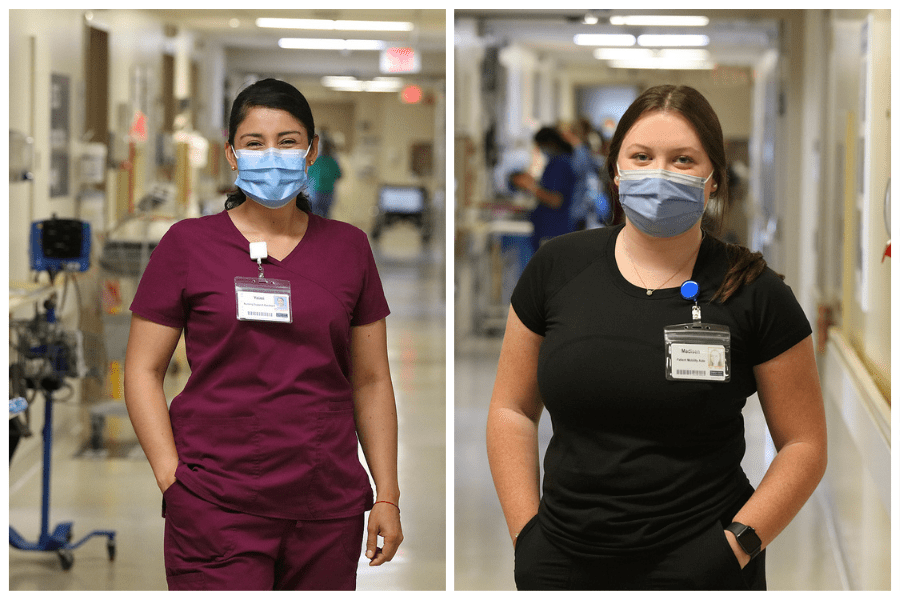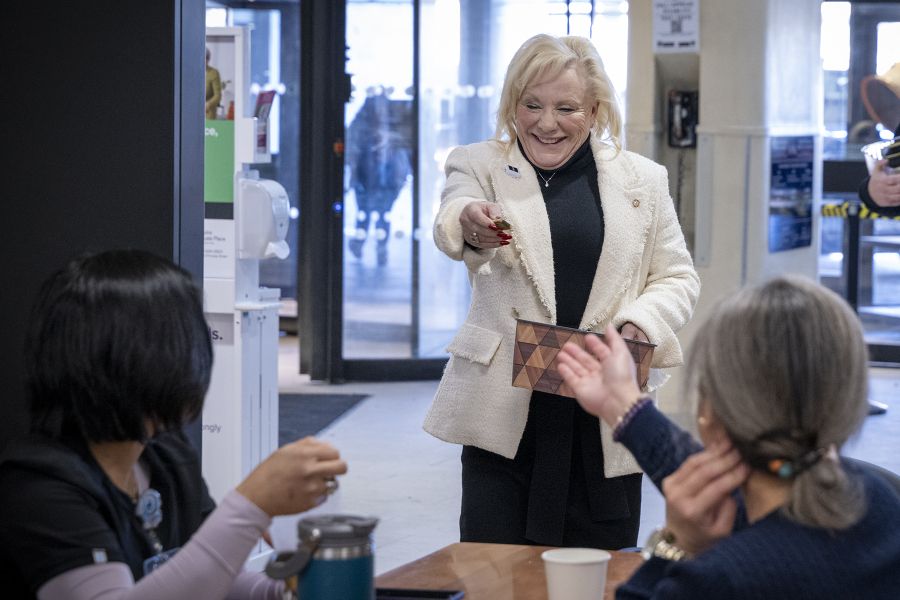
One of the strategies to help navigate staffing shortages in nursing and other key roles such as patient care assistants (PCAs) and medical technologists – that were challenges for most Canadian hospitals before the COVID-19 pandemic, but that the pandemic has made worse – has been the creation of Patient Mobility Aide (PMA) and Nursing Support Assistant (NSA) roles.
Many of the bright, compassionate people who have stepped into these nursing support roles over the past seven months are nursing students. Others, like Yeimi Camargo Lizarazo, a Colombian doctor now studying health information management in Kingston, have a keen interest in health care.
“Nurses and other members of the care team always have a lot of work,” says Camargo Lizarazo, “so my role as a nursing support assistant is to help them and reduce, in some measure, the workload. Many times when I have brought a glass of water to a patient or changed someone’s briefs, the nurses said thank you.”
This past April, Statistics Canada reported that the job vacancy rate in the health-care and social assistance sector was 5.4%, which is a 21.3% increase year-over-year.
According to 2019 data from the Canadian Institute for Health Information, Ontario – with a ratio of 725 registered nurses per 100,000 people – ranks as the lowest province in Canada and below the national average of 811 nurses per 100,000 people.
“While we continue to recruit and keep up with those leaving for a variety of reasons, including retirement, we can’t simply hire more people to fill our gaps because there aren’t enough people to fill all of the hospital vacancies in Ontario,” says Sandra Carlton, KHSC’s Chief Human Resources Officer. “We must look at other creative approaches in addition to recruitment.”
With staffing shortages at critical levels at times and an increase in patients needing hospital-based care, KHSC and its care teams are not able to wait for more talent to enter the health-care system.
“We monitor staffing levels daily and have been working together to manage challenges by redeploying staff where they are needed most and enabling support roles like Yeimi’s to assist on nursing units,” says Carlton.
So far, KHSC has hired over 50 PMAs and 60 NSAs. Both roles focus on daily living activities, such as feeding, going to the bathroom and bathing, while PMAs also work to get patients up and moving, which helps improve patients’ recovery. Many nursing students have also been hired to work as PCAs for the summer, and some will stay on over the school year as casual employees.
Even though nursing support roles don’t make it easier for nurses to take the time off work that they need and deserve, they are helping care teams manage the patient-care workload.
“One time, a patient was agitated and everyone was busy, so I asked the person if they wanted to see the lake through the window. After that, the patient was calm for a couple of hours. This is the kind of care that nursing support assistants can offer as a complement,” says Camargo Lizarazo. “When I can help relieve a patient’s discomfort by helping them to change position, giving them a warm blanket or talking with them, it feeds my soul.”
Madisen Taylor, a third-year nursing student and patient mobility aide at KHSC, says that the support roles like hers are a “very necessary set of helping hands.”
In addition to being able to see patients improve throughout the course of their recovery and noting how people in support roles like hers have contributed to that, Taylor says the experience of working as a PMA has given her a greater understanding of nursing since she is in the hospital setting more than she would be through her schooling alone.
“I have also learned how to work collaboratively with allied health including physiotherapy and occupational therapy to improve patients’ outcomes, which I believe will benefit my nursing career,” says Taylor.
For Camargo Lizarazo, who can’t work in Canada as a doctor yet, this experience has given her more insight into the hard, compassionate work that occurs alongside the work of other care-team members such as physicians. It also gives her the best opportunity to be with patients: “At the end of the day, my purpose is to help others, wherever my position in health care might be.”
The experience working as a nursing support assistant has not only reinforced for Camargo Lizarazo the idea that “all of us have a big responsibility to try and make health care better,” it has also been a reminder to her to be grateful.
“The hardest moments are when more can’t be done for patients to help them feel better and when they are living their final days.
“These scenarios make me think that we should be thankful for being able to do the simple things every day, such as taking a warm shower by ourselves, moving without help and breathing without difficulty.”
Gallery


(Left) Yeimi Camargo Lizarazo, former Colombian doctor, current health information management student and KHSC nursing support assistant, and (Right) Madisen Taylor, a third-year nursing student and patient mobility aide at KHSC.



